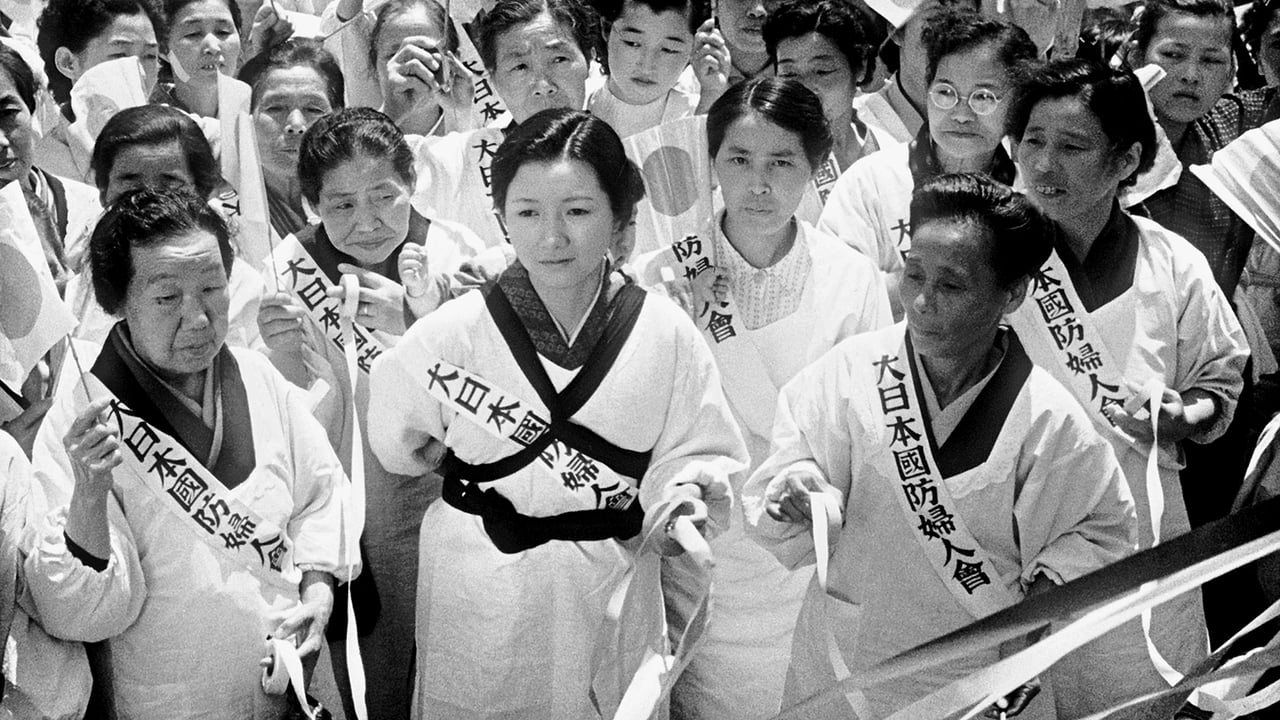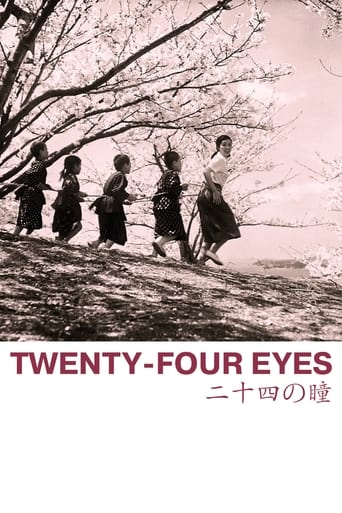

Lack of good storyline.
... View MoreIt's funny watching the elements come together in this complicated scam. On one hand, the set-up isn't quite as complex as it seems, but there's an easy sense of fun in every exchange.
... View MoreThe movie turns out to be a little better than the average. Starting from a romantic formula often seen in the cinema, it ends in the most predictable (and somewhat bland) way.
... View MoreThe joyful confection is coated in a sparkly gloss, bright enough to gleam from the darkest, most cynical corners.
... View More25 years ago I made up my mind I would move to Japan. So I wrote to people in Japan who had lived there for over thirty years, and asked them what would be the #1 movie I should watch that encapsulated the spirit of the Japanese.They all suggested "24 Eyes". Now, after having lived in a strictly Japanese environment for five years, and having seen well over thirty Japanese movies, not to mention over a thousand hours of TV shows and animae, it is still the #1 to me. By today's standards it will seem extremely "G" rated, a little too slow and a bit too long. But for those who want to really understand people, and where they are coming from, I can't think of a better movie to recommend. I wish every culture, particularly those that may be going extinct, would use this movie as a guideline to tell their story.
... View MoreThis film is a not-so-subtle piece of propaganda, written primarily for the people of Japan who apparently needed to wallow in the self-pity they experienced in the wake of World War II. Masterfully set around a benevolent, loving and "enlightened" teacher - who even manages to "shock" the island's inhabitants by wearing Western clothes and riding a bicycle - and her twelve original pupils, whose "twenty-four teary eyes" are constantly exploited for the manipulation of the viewer, the story does nothing to appeal to the collective sense of shame and remorse that the Japanese nation should have felt. War was treated as something of a "brutal reality" that somehow was "forced" on Japan and its inhabitants, to the point that she had to send her young men to spill their blood and give their lives heroically in the defense of the "motherland." Most infuriating was the casual mention of the "incidents" in Manchuria and Shanghai. Not even a word, if only in passing, about Nanking! Let the viewer - especially the Japanese viewer! - remember that many of the girls raped in Nanking were not much older than the teary-eyed girls shown in the film. Chinese young men fared no better as many were decapitated or buried alive for the "sport" and amusement of the Japanese butchers! This is the most shameful film in memory, one that even the Nazi propaganda machine would have had a hard time pulling off - yes, Joseph Goebbels would have been proud of it. A TOTAL WASTE OF TWO-AND-A-HALF HOURS! I will have to wash this filth from my mind tomorrow by viewing the 2007 documentary "Nanking." And, finally, a question for all those who have lavished praise for the story, the actors the director and his cinematic "accomplishment": If this story had been written in Germany in 1954 by a famous film-maker and presented to the world as a reality in that country during the years the story covered, would the movie critics' reaction be the same? Would YOUR reaction be the same? Something to think about!
... View MoreIt just so happened that I watched this 1954 movie right after a newer big budget work - the 2001 Uprising.Both movie centered around WWII and the havoc it caused. Told from the victims' perspective, both dealt with the issues of living and dying in the most horrendous circumstances.While Jon Avnet tells the Warsaw Jewish uprising through vivid action scenes, director Kinoshite did not even fire a single shot. The closest he got to any kind of violence was the lead actress falling into a sandpit.Yet the pain of war came through stronger in this almost pastoral movie. It is almost excruciating to watch her slowly losing her brood of students to the cruelty of war.Hideko Takamine played the part of teacher beautifully. From a brash young innocent before the war to a wizened survivor, she did it with great sensitivity. If ever anyone needs a portrait of Japanese stoicism, she must surely be the first choice. You will surely grieve with her at the loss of her young daughter - falling to her death trying to pluck a persimmon to ease her hunger.156 minutes may seems a long time by modern movie standard. But at the end of this movie, you could almost be there at the little inn, sipping a little sake, looking at a old school photo through a blind man's eyes, celebrating life.
... View MoreIt was a pleasure for me to see this lovely movie, a film I've really wished to see in the last four years but I couldn't do it until today. I heard about this movie when I lived in Japan and visited Shodoshima island, where "Eiga Mura" (Cinema Village), the place this film was made, can still be visited and the atmosphere of the past can be enjoyed. To be honest, I must say that "Nijushi no hitomi" wasn't for me the "exceptional film" I expected to see, but anyway it has been a pleasant experience. The life of the rural teacher, from the start of her career (in the mid 20's) to the time she retakes her teaching position after having become a widow (in the 40's, after the end of WWII), is an interesting guide to discover the traditional life and mentalities in the small islands of Seto (Japan Inland Sea). A good point for this film: it is usually said that this is an "anti-war" film. Well, it is true that the teacher shows a clear position against the wars Japan was involved (the war against China and the later Pacific War against the USA), but this film mustn't be considered as a pacifist pamphlet: the honest position of the teacher against the war is just one more detail in this complete description of how life should be in rural Japan during those difficult prewar, war and postwar years. A film that should be shown in every school around the world.
... View More